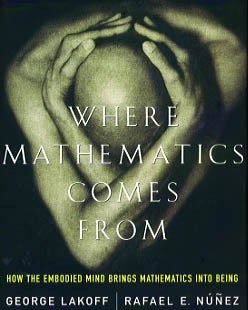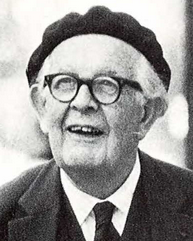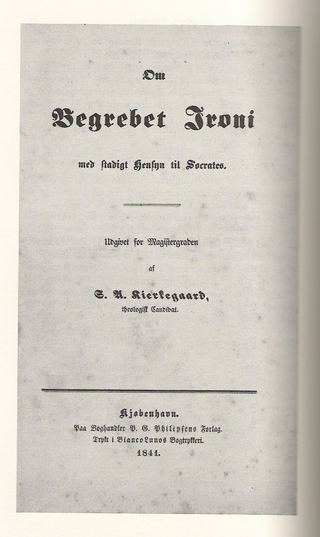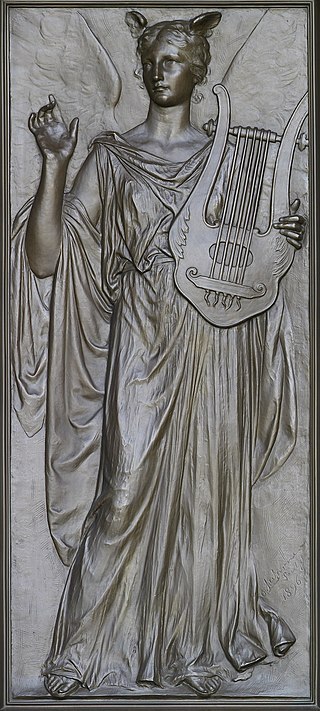 | |
| Author | Kieran Egan |
|---|---|
Publication date | 1997 |
| ISBN | 0-226-19036-6 |
The Educated Mind: How Cognitive Tools Shape Our Understanding is a 1997 book on educational theory by Kieran Egan.
 | |
| Author | Kieran Egan |
|---|---|
Publication date | 1997 |
| ISBN | 0-226-19036-6 |
The Educated Mind: How Cognitive Tools Shape Our Understanding is a 1997 book on educational theory by Kieran Egan.
Egan argues that much educational theorizing pivots around three basic ideas about the aim of education:
Egan argues in Chapter One that "these three ideas are mutually incompatible, and this is the primary cause of our long-continuing educational crisis"; [2] the present educational program in much of the West attempts to integrate all three of these incompatible ideas, resulting in a failure to effectively achieve any of the three. [3]
Egan argues that knowledge and understanding arise through five kinds of understanding. This development can be explained by "logical and psychological pressures." Egan differentiates his theory from the conceptions of recapitulation common in the late 19th century and early 20th century.
People can learn cognitive tools that are grouped and classified into five kinds of understanding:
"Drawing from an extensive study of cultural history and evolutionary history and the field of cognitive psychology and anthropology, Egan gives a detailed account of how these various forms of understanding have been created and distinguished in our cultural history". [4]
Each stage includes a set of "cognitive tools", as Egan calls them, that enrich our understanding of reality. Egan suggests that recapitulating these stages is an alternative to the contradictions between the Platonic, Rousseauian and socialising goals of education.
Egan resists the suggestion that religious understanding could be a further last stage, arguing instead that religious explanations are examples of ironic understanding preserving a richly developed somatic understanding.
Egan's main influence comes from the Russian psychologist Lev Vygotsky. [3] The idea of applying theory of recapitulation to education came from 19th century philosopher Herbert Spencer, although Egan uses it in a very different way. Egan also uses educational ideas from William Wordsworth and expresses regret that Wordsworth's ideas, because they were expressed in poetry, are rarely considered today.
The same year the essay was published (1997), Italian comedian-satirist Daniele Luttazzi used Egan's ideas for his character Prof. Fontecedro in the popular TV show Mai dire Gol , aired on Italia 1. Fontecedro was satirizing the inadequacies of the Italian school system, and the reforms proposed by Luigi Berlinguer, 1996-2000 Ministry of Education of Italy. Fontecedro's sketches brought Egan's theory to extreme levels with surreal humor. The jokes were later published in the book Cosmico! (1998, Mondadori, ISBN 88-04-46479-8), where the five stages of mind development are also cited at pp. 45–47.

Educational psychology is the branch of psychology concerned with the scientific study of human learning. The study of learning processes, from both cognitive and behavioral perspectives, allows researchers to understand individual differences in intelligence, cognitive development, affect, motivation, self-regulation, and self-concept, as well as their role in learning. The field of educational psychology relies heavily on quantitative methods, including testing and measurement, to enhance educational activities related to instructional design, classroom management, and assessment, which serve to facilitate learning processes in various educational settings across the lifespan.

Learning theory describes how students receive, process, and retain knowledge during learning. Cognitive, emotional, and environmental influences, as well as prior experience, all play a part in how understanding, or a worldview, is acquired or changed and knowledge and skills retained.

The theory of recapitulation, also called the biogenetic law or embryological parallelism—often expressed using Ernst Haeckel's phrase "ontogeny recapitulates phylogeny"—is a historical hypothesis that the development of the embryo of an animal, from fertilization to gestation or hatching (ontogeny), goes through stages resembling or representing successive adult stages in the evolution of the animal's remote ancestors (phylogeny). It was formulated in the 1820s by Étienne Serres based on the work of Johann Friedrich Meckel, after whom it is also known as Meckel–Serres law.
The philosophy of education is the branch of applied philosophy that investigates the nature of education as well as its aims and problems. It includes the examination of educational theories, the presuppositions present in them, and the arguments for and against them. It is an interdisciplinary field that draws inspiration from various disciplines both within and outside philosophy, like ethics, political philosophy, psychology, and sociology. These connections are also reflected in the significant and wide-ranging influence the philosophy of education has had on other disciplines. Many of its theories focus specifically on education in schools but it also encompasses other forms of education. Its theories are often divided into descriptive and normative theories. Descriptive theories provide a value-neutral account of what education is and how to understand its fundamental concepts, in contrast to normative theories, which investigate how education should be practiced or what is the right form of education.

Where Mathematics Comes From: How the Embodied Mind Brings Mathematics into Being is a book by George Lakoff, a cognitive linguist, and Rafael E. Núñez, a psychologist. Published in 2000, WMCF seeks to found a cognitive science of mathematics, a theory of embodied mathematics based on conceptual metaphor.

George Philip Lakoff is an American cognitive linguist and philosopher, best known for his thesis that people's lives are significantly influenced by the conceptual metaphors they use to explain complex phenomena.

Jean William Fritz Piaget was a Swiss psychologist known for his work on child development. Piaget's theory of cognitive development and epistemological view are together called "genetic epistemology".
Social constructivism is a sociological theory of knowledge according to which human development is socially situated and knowledge is constructed through interaction with others.

Constructivism is a view in the philosophy of science that maintains that scientific knowledge is constructed by the scientific community, which seeks to measure and construct models of the natural world. According to the constructivist, natural science, therefore, consists of mental constructs that aim to explain sensory experience and measurements.

Constructivism is a theory in education which posits that individuals or learners do not acquire knowledge and understanding by passively perceiving it within a direct process of knowledge transmission, rather they construct new understandings and knowledge through experience and social discourse, integrating new information with what they already know. For children, this includes knowledge gained prior to entering school. It is associated with various philosophical positions, particularly in epistemology as well as ontology, politics, and ethics. The origin of the theory is also linked to Swiss developmental psychologist Jean Piaget's theory of cognitive development.

Piaget's theory of cognitive development is a comprehensive theory about the nature and development of human intelligence. It was originated by the Swiss developmental psychologist Jean Piaget (1896–1980). The theory deals with the nature of knowledge itself and how humans gradually come to acquire, construct, and use it. Piaget's theory is mainly known as a developmental stage theory.
Cognitive development is a field of study in neuroscience and psychology focusing on a child's development in terms of information processing, conceptual resources, perceptual skill, language learning, and other aspects of the developed adult brain and cognitive psychology. Qualitative differences between how a child processes their waking experience and how an adult processes their waking experience are acknowledged. Cognitive development is defined as the emergence of the ability to consciously cognize, understand, and articulate their understanding in adult terms. Cognitive development is how a person perceives, thinks, and gains understanding of their world through the relations of genetic and learning factors. There are four stages to cognitive information development. They are, reasoning, intelligence, language, and memory. These stages start when the baby is about 18 months old, they play with toys, listen to their parents speak, they watch tv, anything that catches their attention helps build their cognitive development.
Merlin Wilfred Donald is a Canadian psychologist, neuroanthropologist, and cognitive neuroscientist, at Case Western Reserve University. He is noted for the position that evolutionary processes need to be considered in determining how the mind deals with symbolic information and language. In particular, he suggests that explicit, algorithmic processes may be inadequate to understanding how the mind works.

Kieran Egan was an Irish educational philosopher and a student of the classics, anthropology, cognitive psychology, and cultural history. He has written on issues in education and child development, with an emphasis on the uses of imagination and the stages that occur during a person's intellectual development. He has questioned the work of Jean Piaget and progressive educators, notably Herbert Spencer and John Dewey.

Positivism is an empiricist philosophical theory that holds that all genuine knowledge is either true by definition or positive—meaning a posteriori facts derived by reason and logic from sensory experience. Other ways of knowing, such as theology, metaphysics, intuition, or introspection, are rejected or considered meaningless.
Constructivist teaching is based on constructivist learning theory. Constructivist teaching is based on the belief that learning occurs as learners are actively involved in a process of meaning and knowledge construction as opposed to passively receiving information.

On the Concept of Irony with Continual Reference to Socrates is Søren Kierkegaard's 1841 master's thesis under Frederik Christian Sibbern. This thesis is the culmination of three years of extensive study on Socrates, as seen from the view point of Xenophon, Aristophanes, and Plato.

Imagination is the production or simulation of novel objects, sensations, and ideas in the mind without any immediate input of the senses. Stefan Szczelkun characterises it as the forming of experiences in one's mind, which can be re-creations of past experiences, such as vivid memories with imagined changes, or completely invented and possibly fantastic scenes. Imagination helps make knowledge applicable in solving problems and is fundamental to integrating experience and the learning process. As an approach to build theory, it is called "disciplined imagination". A basic training for imagination is listening to storytelling (narrative), in which the exactness of the chosen words is the fundamental factor to "evoke worlds".

Getting it Wrong from the Beginning: Our Progressivist Inheritance from Herbert Spencer, John Dewey, and Jean Piaget is a 2002 book by Kieran Egan that criticizes the traditional progressivist foundations of modern education in the Western world, especially in North America. Egan primarily focuses on the ideas of Herbert Spencer, John Dewey, and Jean Piaget, which he calls the most influential sources of contemporary progressivist educational philosophy. Egan identifies this book in its introduction as being a companion to his previous work The Educated Mind.

An Imaginative Approach to Teaching is a 2005 non-fiction book by Kieran Egan that explains his ideas about how students’ imaginations work in learning. It focuses on the applications of this philosophy in the everyday classroom setting utilizing a set of prescribed cognitive tools. This book is an elaboration of some of Egan’s ideas about how the acquisition of cognitive tools can work effectively in education. He expounded these ideas in his 1997 book The Educated Mind.
previous works on ironic knowledge:
Reviews